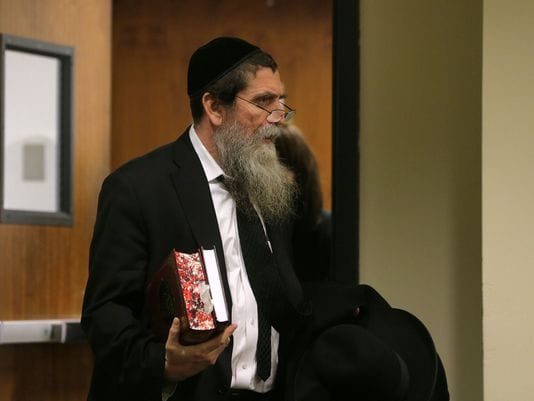A New Jersey appeals court on Friday morning issued its ruling upholding Judge Joseph Paone’s decision to throw out SCHI founder Rabbi Osher Eisemann’s convictions on money laundering and misconduct by a corporate official based on evidence that came to light following the conclusion of the trial.
The issue at hand was a QuickBooks entry which prosecutors used to convince a jury that Rabbi Eisemann had laundered money through SCHI. Following the conclusion of the trial, this “evidence” was shown to be worthless when the bookkeeper who made the entry said it was a method to balance the books and didn’t reflect a loan made to Rabbi Eisemann. Such a loan, in fact, didn’t exist and SCHI actually owed Rabbi Eisemann more than $300,000.
At the time of the trial, the bookkeeper’s identity was known to the prosecution but not the defense. Prosecutors never even spoke to the bookkeeper to ascertain whether the QuickBooks entry reflected a debt or not – they just used the entry to further their own agenda. Even worse, the prosecutors didn’t turn over the identity of the bookkeeper to the defense team – despite being asked for it – making it impossible for them to call her as a witness to show that Rabbi Eisemann did nothing wrong.
In light of the new exculpatory evidence and the prosecution’s hiding of that evidence, Judge Paone threw out the convictions and ordered a new trial. The state appealed, arguing that the evidence wasn’t new and that it had no obligation to turn it over to the defense team. The prosecution argued that Judge Paone abused his discretion in ordering a new trial and that Rabbi Eisemann should go straight to the sentencing phase, where he could have been jailed for up to 20 years.
The appeals court unanimously disagreed, writing in its decision that the new evidence clearly shows that there was no loan made to Rabbi Eisemann. If no loan existed, he could not have committed the crimes prosecutors insisted he did.
The appeals court judges also wrote that the prosecution was clearly in violation of the Brady Act, which requires all relevant evidence to be turned over to the defense. Instead, they hid that evidence, and got a faulty conviction out of it.
With the appeals court’s ruling, Rabbi Eisemann is now a free man. For their part, the prosecution said it is appealing to the state Supreme Court. If it denies them a hearing – which is likely – prosecutors have a choice to make: they can either drop the case in its entirety, or they can charge Rabbi Eisemann again. But this time, they would have to contend with the testimony of the bookkeeper that undermines their entire case.


Wow thanks for explaining the case so clearly!! What a Tzadik!